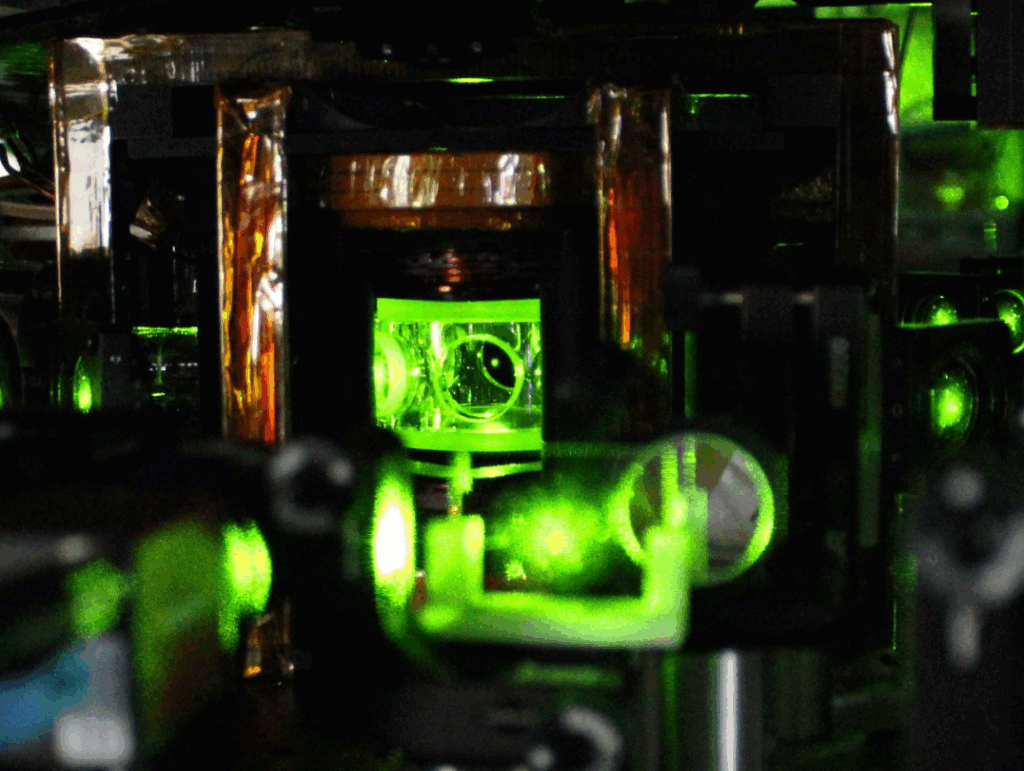Alex Burgers receives NSF CAREER Award to advance quantum communications

Alex Burgers received a National Science Foundation (NSF) Faculty Early Career Development Program (CAREER) Award for research on technologies to develop quantum networks, titled “Integrating Ytterbium Atoms with Nanophotonics for Creating Modular Quantum Architectures Connected via Telecom Photons.”
Quantum networks enable the transmission of protected information. One way to send that information is by routing photons—units of light emitted by excited atoms—through thin strands of glass or plastic called optical fibers.
Similar to a bit of 0 or 1 in classical computing, the fundamental information unit of quantum computing is a qubit. Burgers will use the internal states of ytterbium atoms as the qubits in his system, which are then entangled with the photons that they emit.

“Entanglement means that the state of the photon tells you something about the state of the qubit; they are inextricably connected,” explained Burgers, assistant professor of Electrical and Computer Engineering. “A photon can travel long distances, carrying that entanglement with it. Then, by making a special kind of measurement on that photon, we can entangle additional systems that are farther away to make a network.”
Ytterbium has several benefits over other atoms for quantum applications. It has a metastable, or long-lasting, excited state that lends itself to the types of measurements Burgers will perform on the entangled photons. It also emits photons with frequencies in the telecommunications band, which are best-suited for transmission through optical fibers.
“The sweet spot for optical fibers is in the telecommunications band, so having an atom that emits in that frequency range is really advantageous for integrating into existing telecommunications infrastructures,” said Burgers.
Burgers will use custom chips fabricated at the Lurie Nanofabrication Facility that have miniature optical (“nanophotonic”) cavities—mirrors facing each other, designed to catch the light emitted from an excited atom—built into them. With a series of highly-focused laser beams called optical tweezers, he can capture individual ytterbium atoms and move them just above the nanophotonic cavities on the chips. From there, an emitted and entangled photon can be controlled and directed into the optical fiber to travel to another node in the network.

This CAREER Award will support the Quantum Optics Lab in developing a robust and scalable quantum networking platform, capable of efficiently linking separate quantum systems. Burgers’ research team will ultimately explore experimentally uncharted territories in quantum science and develop the quantum workforce through educational opportunities for high schoolers, undergraduates, and graduate students.
Burgers earned his PhD in Physics at the University of Michigan in 2015. He did postdoctoral research at the California Institute of Technology and Princeton University prior to his return to Michigan as an assistant professor in 2022. He has received research funding from AFOSR, DARPA, and ARO, in addition to his NSF CAREER Award.

 MENU
MENU